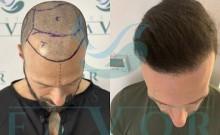
A bizarre case stunned paediatricians in Los Angeles when they found a sea snail growing inside an 11-year-old's pus-filled lump on the elbow. This is the first recorded case of its kind in medical literature.
The unnamed boy was 'visibly excited' and was allowed to keep the snail after it was removed so that he could share the tale with his friends.
The 4mm slimy subject was later identified as a chequered periwinkle marine snail and reportedly died just a day later.
ALSO READ: From brain leaking out to double pregnancy: 7 bizarre medical cases
The strange case intrigued the doctors at the Loma Linda University's paediatrics department and published it in the BMJ Case Reports.
It is believed that the boy was inoculated with a snail egg when he hurt his elbow while playing in a tidal pool. The snail egg got in the wound, hatched inside and then grew, triggering an abscess ( a painful collection of pus) caused by an infection.
Doctors wrote in the journal: "An extensive literature review of major medical and scientific databases... was performed."
They added: "We found no documented case reports in medical literature of... marine snails living inside a bacterial skin abscess for any length of time."
ALSO READ: Mermaid baby born in India tragically dies four hours later
The boy was taken to a clinic by his parents who thought it to be a matter of concern when they noticed that the lesion on the elbow of the boy after he hurt himself is slowly getting larger.
After questioning, the paediatricians got to know that he slipped on a rock while exploring tide pools in San Pedro. The doctors noticed that his elbow was tender, the skin was red and swollen. However, the boy claimed that it wasn't painful and was not itching - two other signs of an infection.
Doctors decided to drain the small lump on the boy's elbow using a sterile needle. While removing the pus, they were shocked to discover a 'small, darkly coloured foreign body'. The boy's wound reportedly healed fully after a week.















